Jste zde
Gizelle’s Story: A Mother’s Gift
Gizelle was diagnosed with bone marrow failure at age 9 in March 1995. Her blood cell counts were extremely low, and her chances of developing severe infections or excessive bleeding were high. In a world of tests, doctors, and desperation, she needed a miracle to stay alive. The only potential cure was a matched stem cell transplant, but she had no siblings. In desperation, her mother was tested and found to be a 100% HLA match – a very rare miracle!
The stem cells donated by her mother saved Gizelle and enabled her to have the life she was destined to live. We are sharing a transcript of a video statement from Gizelle and an exclusive interview with our Foundation.
“Life’s journey is a compilation of different experiences, good and bad. My bone marrow transplant was horrible. There was a lot of sadness, heart ache, pain, and fear of dying. As a young child I knew exactly what I was going through, for the most part of it. Why me? Why did I have to die? I had so much more to do, so much more to live. But today I stand here as a grown woman, and I am so honored to have gone through that experience. It has truly made me what I am, and I am proud of who I am today. I’m also proud to see how such an experience has given people like my mother purpose. The drive to educate, the drive to save others. I’ve received my miracle today. And I know not everyone will. Moms and dads, if you’re looking at storing your baby’s stem cells, that is the best that you can do for them, for your family. Life is precious. Protect it. And live it.”
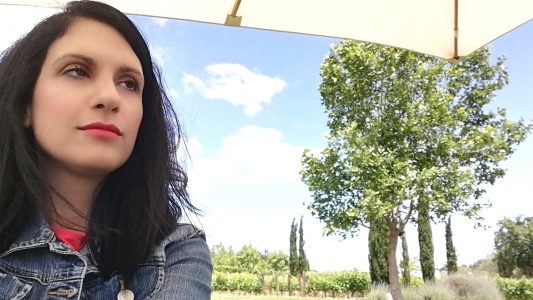
Questions: Gizelle, it is now 24 years after your stem cell transplant and you are 33 years old. Tell us a bit about your life now: Where do you live and work? Are you married? What are your passions?
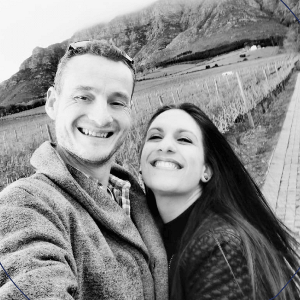 Gizelle: “I married the love of my life 10 years ago and today we live in a breathtaking part of South Africa, the Cape Winelands. I don't have any children but I spoil my cats just the same. I am currently working for a software company as a Channel Manager, just 20km from where I was given a second chance at life. I absolutely love being in nature, so anything I do, I try and do outside. Ultimately my passion is to have as many positive experiences in life as I possibly can, shared with people I absolutely adore!”
Gizelle: “I married the love of my life 10 years ago and today we live in a breathtaking part of South Africa, the Cape Winelands. I don't have any children but I spoil my cats just the same. I am currently working for a software company as a Channel Manager, just 20km from where I was given a second chance at life. I absolutely love being in nature, so anything I do, I try and do outside. Ultimately my passion is to have as many positive experiences in life as I possibly can, shared with people I absolutely adore!”
Questions: Do you feel that your life has been “normal” once you recovered from the bone marrow failure and the stem cell transplant? In the video you said you were proud to have been shaped by that experience. How much are you aware of that history on a day to day basis? Do you welcome reminders, or do you prefer to move on?
Gizelle: “What an interesting question. If you had asked me a few years ago, I would have said that I didn't want to think about it and that I just wanted to move on and be normal. Because in reality, I have never been normal and probably never will be. What is 'normal' anyway...? But saying this, I've always believed that everything happens for a reason, but it's your choice if you want to figure out that reason. At 33 I generally welcome reminders and how fortunate I am. Certain smells, foods (Easter eggs) and movies (Babe the Pig) take me back to those days. However, I do have days when I just don’t want to think about it, but I believe that's normal.”
Question: You had a stem cell transplant in 1995. Parent’s Guide to Cord Blood is dedicated in memory of the founder’s daughter Shai, who had a stem cell transplant in 1997. In your video you said your transplant was ‘horrible’. Do you have any thoughts on how medical care could be or should be better for children going through transplants?
Gizelle: “I think that doctors should be more open to children about what they might experience throughout their transplant journey, even getting someone to talk to them before the transplant (someone that has gone through it) - I believe this will be incredibly helpful. Lastly, positivity should be the word of the day, every day... even when things are going wrong. I know for certain that if I weren't as positive and optimistic during my journey I might have given up during those very dark days.”

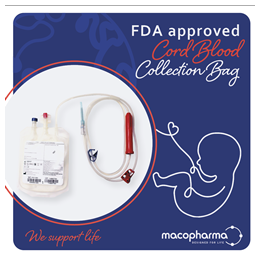
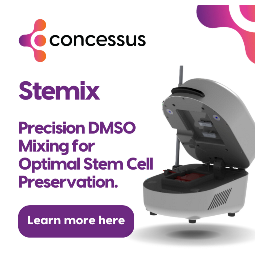
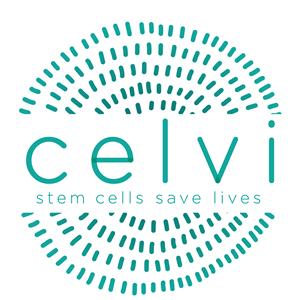 The stem cell transplant that saved Gizelle's life also changed the life of her mother, Erna West, to one with a new purpose: To give back to this community in any way she could. After a journey spanning two decades, of gaining experience and meeting people with a shared vision, CELVI was born.
The stem cell transplant that saved Gizelle's life also changed the life of her mother, Erna West, to one with a new purpose: To give back to this community in any way she could. After a journey spanning two decades, of gaining experience and meeting people with a shared vision, CELVI was born.